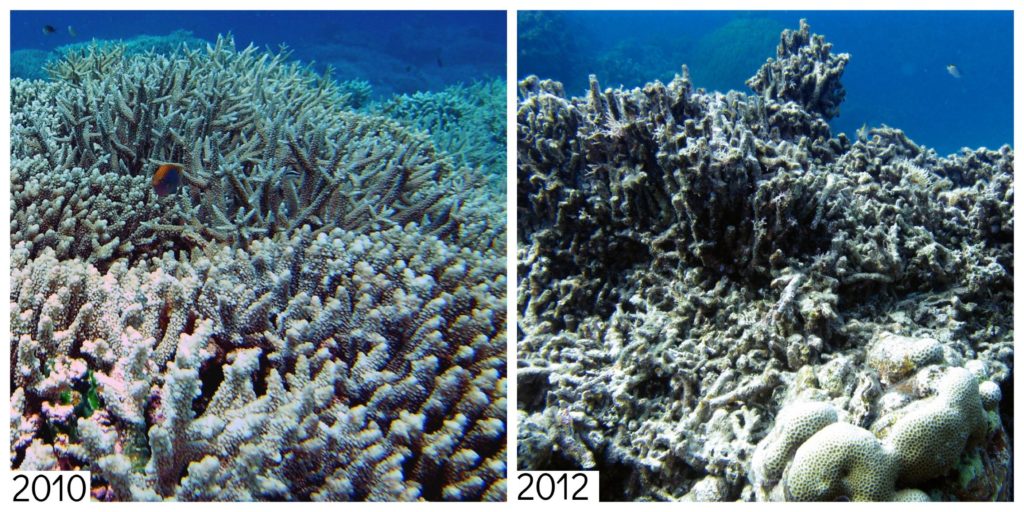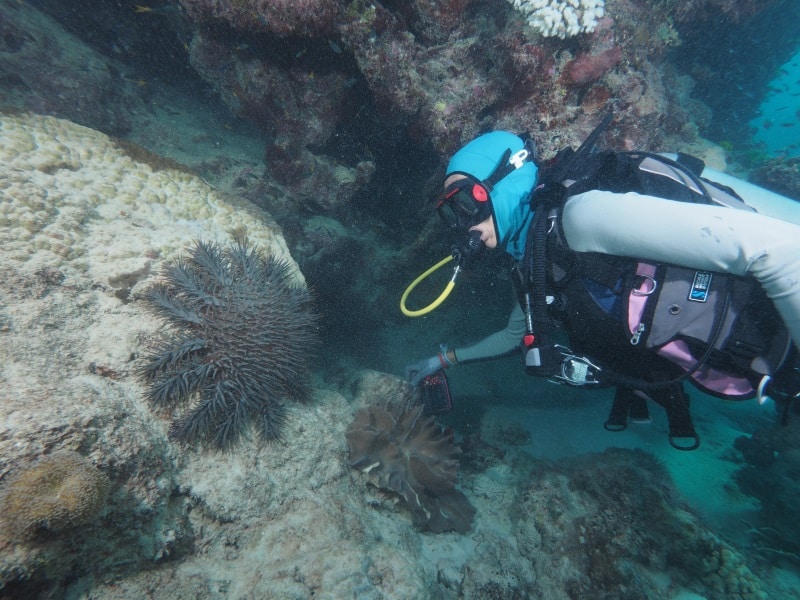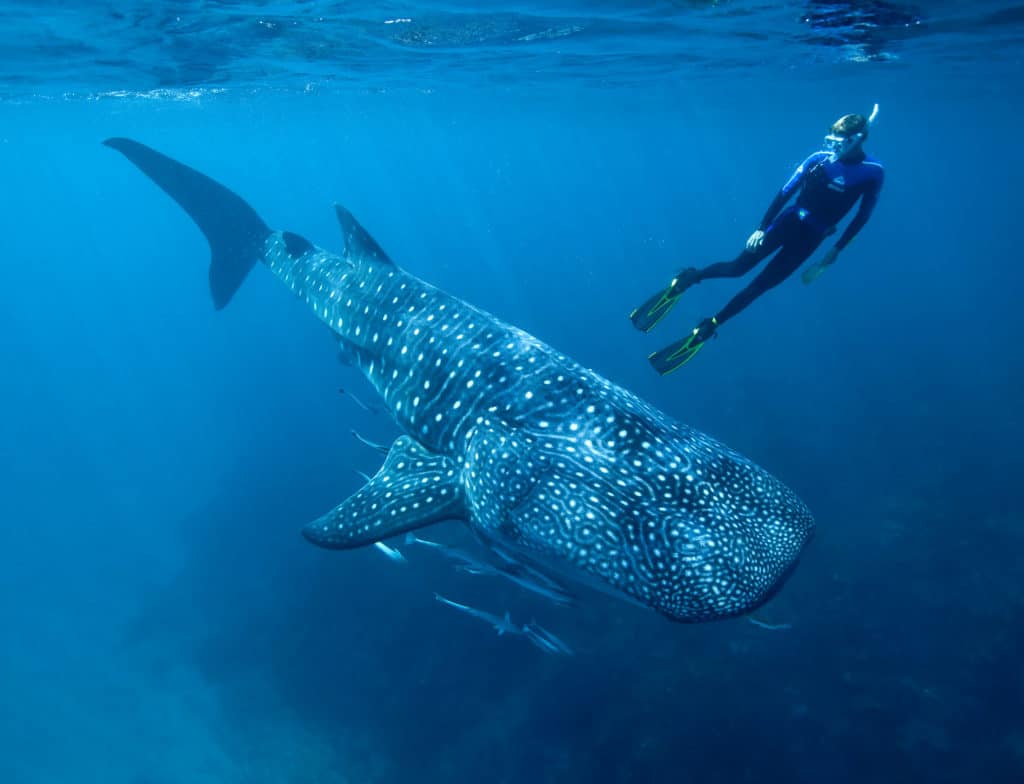Research finds current models underestimate the impact of hurricanes and typhoons on coral reef communities

Big and strong cyclones can harm coral reefs as far as 1000 kilometres away from their paths, new research shows.
A study led by Dr Marji Puotinen from the Australian Institute of Marine Science (AIMS) sounds a warning about the way strong cyclone winds build extreme seas that affect coral reefs in Australia and around the world.
Conventional modelling used to predict how a cyclone, hurricane or typhoon might impact corals assumes that wave damage occurs primarily within 100 kilometres of its track.
Continue reading Cyclones can damage even distant reefs




